Product Description
 Creativity is preserved in dementia long after other abilities are lost, so that making art provides rich opportunities for meaningful engagement for people with Alzheimer’s or dementia. Creative Connections™ in Dementia Care provides care partners with the knowledge and easy-to-follow steps they need to successfully implement art projects in a group or one-on-one setting—and no art experience is required!
Creativity is preserved in dementia long after other abilities are lost, so that making art provides rich opportunities for meaningful engagement for people with Alzheimer’s or dementia. Creative Connections™ in Dementia Care provides care partners with the knowledge and easy-to-follow steps they need to successfully implement art projects in a group or one-on-one setting—and no art experience is required!
Written for anyone who cares for a person with dementia—family members, friends, and professionals—this how-to manual is packed with guidance to help enhance communication, interactions, task breakdown, and problem-solving efforts while also encouraging the abilities of each participant.
People with dementia enjoy valuable benefits when they actively engage in a creative activity:
- stress is reduced
- memories can be accessed
- mood and self-esteem are elevated
- a sense of personal identity and achievement is experienced
To help create these opportunities, Creative Connections™ in Dementia Care provides 10 basic art project “recipes,” detailing supplies, instructions, and activity modifications, as well as colorful, step-by-step photographs that show how to demonstrate and lead the activity for the person with dementia. Each art activity is failure-free and does not require memory skills to complete.
Bring joy and a powerful sense of connection to the lives of people experiencing dementia with this one-of-a-kind guide!
About the Authors and the Carolyn L. Farrell Foundation for Brain Health
Foreword, by Charles J. Farrell, M.D.
Acknowledgments
A Message to Care Partners
Enhancing Communication by Recognizing Abilities
- Why Art?
- What Is Creative Connections?
- What Is Dementia?
- What Can the Environment Do?
- Memory
- Supporting Memory and Attention
- What Is Communication?
- Tips for Effective Communication
- Offering Choices
- Task Breakdown
- Unique to the Home Environment
- Know the Person
- Creative Connections Assessment Form
- Creative Connections Recipe Basics
Resources
- Supplies
- Supply Storage
- C.R.E.A.T.E. and P.R.E.S.E.N.T. Art
- Artist Feedback Form
- Guide Feedback Form
- Gifts of Art
- Bibliography
- Additional Resources
 Rev. Katie Norris, M.Div., is the owner of Recourse Coaching, where she teaches trauma-informed Montessori based dementia care. She supports family and professional dementia care partners through dementia education videos on Instagram (@creativeconnectionsdementia), online courses, and in her dementia care membership, the Care Partners House™️.
Rev. Katie Norris, M.Div., is the owner of Recourse Coaching, where she teaches trauma-informed Montessori based dementia care. She supports family and professional dementia care partners through dementia education videos on Instagram (@creativeconnectionsdementia), online courses, and in her dementia care membership, the Care Partners House™️.
Rev. Katie has been a dementia care specialist for 14 years and was the first person in the United States to earn the AMI Practitioner Certificate in Montessori for Dementia and Aging. Together with Jennifer Brush, she is the co-author of Creative Connections in Dementia Care: Engaging Activities to Enhance Communication (Health Professions Press, 2015).
Learn more at www.recoursecoaching.com and www.instagram.com/creativeconnectionsdementia
 Jennifer Brush, MA, CCC-SLP, is the Director of Brush Development, USA and the Program Director, Montessori Education for Dementia, St. Nicholas Montessori College, Dun Laoghaire, Ireland. Jennifer serves on the Association Montessori Internationale (AMI) Advisory Board for Montessori for Aging and Dementia, and she is the only AMI Certified Trainer of Trainers for Montessori for Aging and Dementia in the US. Jennifer is the co-author of several nationally recognized books on dementia.
Jennifer Brush, MA, CCC-SLP, is the Director of Brush Development, USA and the Program Director, Montessori Education for Dementia, St. Nicholas Montessori College, Dun Laoghaire, Ireland. Jennifer serves on the Association Montessori Internationale (AMI) Advisory Board for Montessori for Aging and Dementia, and she is the only AMI Certified Trainer of Trainers for Montessori for Aging and Dementia in the US. Jennifer is the co-author of several nationally recognized books on dementia.
Understanding the particular needs of healthcare organizations and families engaged in dementia care she brings more than 20 years of experience as both a leading researcher and direct-care coach in this complex field. She is a nationally recognized speech-language pathologist known for her work in the areas of memory and environmental interventions for people with dementia. She has served as the principal investigator on applied research grants that examined issues pertaining to HIV/AIDS dementia, hearing impairment, dining, swallowing disorders, and the long-term care environment. Ms. Brush has served as Chair of the Professional Development Committee of the American Speech-Language Hearing Association Gerontology Special Interest Division and on the Editorial Review Board of SpeechPathology.com.
Learn more at www.brushdevelopment.com.
 Creativity is preserved in dementia long after other abilities are lost, so that making art provides rich opportunities for meaningful engagement for people with Alzheimer’s or dementia. Creative Connections™ in Dementia Care provides care partners with the knowledge and easy-to-follow steps they need to successfully implement art projects in a group or one-on-one setting—and no art experience is required!
Creativity is preserved in dementia long after other abilities are lost, so that making art provides rich opportunities for meaningful engagement for people with Alzheimer’s or dementia. Creative Connections™ in Dementia Care provides care partners with the knowledge and easy-to-follow steps they need to successfully implement art projects in a group or one-on-one setting—and no art experience is required!
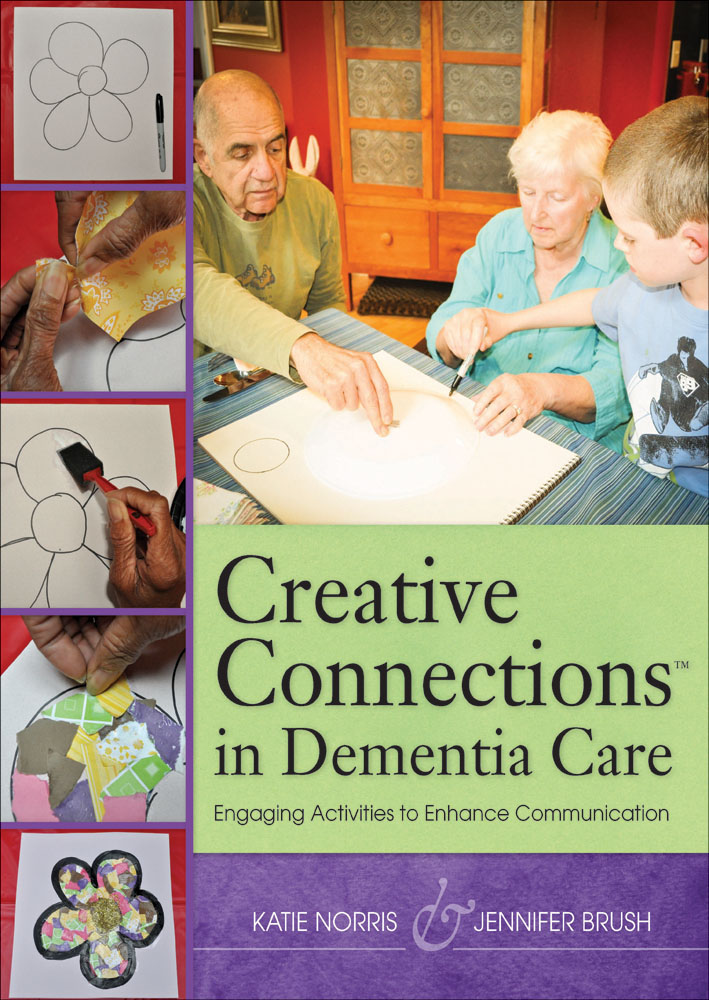
 Rev. Katie Norris, M.Div., is the owner of Recourse Coaching, where she teaches trauma-informed Montessori based dementia care. She supports family and professional dementia care partners through dementia education videos on Instagram (@creativeconnectionsdementia), online courses, and in her dementia care membership, the Care Partners House™️.
Rev. Katie Norris, M.Div., is the owner of Recourse Coaching, where she teaches trauma-informed Montessori based dementia care. She supports family and professional dementia care partners through dementia education videos on Instagram (@creativeconnectionsdementia), online courses, and in her dementia care membership, the Care Partners House™️. Jennifer Brush, MA, CCC-SLP, is the Director of Brush Development, USA and the Program Director, Montessori Education for Dementia, St. Nicholas Montessori College, Dun Laoghaire, Ireland. Jennifer serves on the Association Montessori Internationale (AMI) Advisory Board for Montessori for Aging and Dementia, and she is the only AMI Certified Trainer of Trainers for Montessori for Aging and Dementia in the US. Jennifer is the co-author of several nationally recognized books on dementia.
Jennifer Brush, MA, CCC-SLP, is the Director of Brush Development, USA and the Program Director, Montessori Education for Dementia, St. Nicholas Montessori College, Dun Laoghaire, Ireland. Jennifer serves on the Association Montessori Internationale (AMI) Advisory Board for Montessori for Aging and Dementia, and she is the only AMI Certified Trainer of Trainers for Montessori for Aging and Dementia in the US. Jennifer is the co-author of several nationally recognized books on dementia.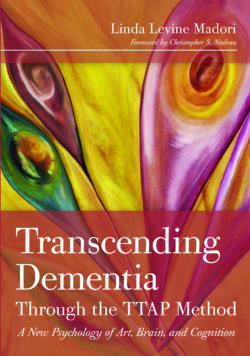
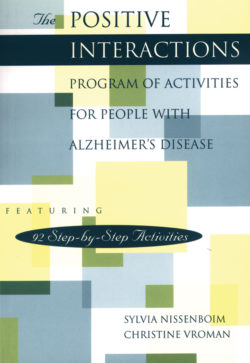
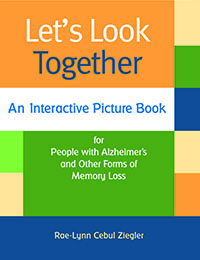
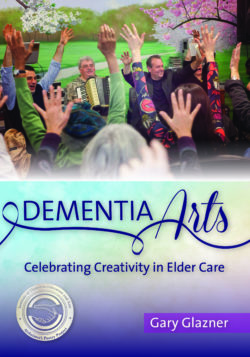
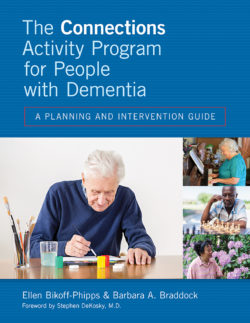
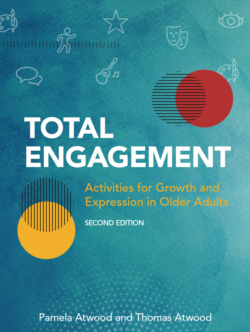
Administrator –
“Creative Connections™ in Dementia Care: Engaging Activities to Enhance Communication is one of the most informative and practical books on how to engage creatively with those living with dementia that I have run across; and I review a lot of books! I love how easy the book is to use. The boxes with punch lists of how’s and why’s, along with pictures that guide you, simplify the process and get a person excited about trying something new. The personal stories touch the heart. I wish this book would have been around when my mother had dementia.”
—Lori La Bey, Founder of Alzheimer’s Speaks
Administrator –
“Creative Connections™ in Dementia Care by Katie Norris and Jennifer Brush provides easy-to-use, step-by-step illustrated instructions for making 10 creative art projects with persons with dementia. This unique resource explains the challenges that accompany dementia and respectful ways to communicate and to present materials to support independent creative expression of persons with dementia. Based on research-supported and person-centered principles, these recipes for art projects have the potential to facilitate meaningful and pleasurable interactions between the artists (i.e., persons with dementia) and their guide (i.e., caregiver). The authors’ suggestions for modifying the activities to match client abilities and for creating variations of the projects extend the usefulness of this approach for a continuum of settings, from community to institutional care. This book is a ‘must-have’ for any caregiver who wants to maintain creativity and joyfulness in persons with dementia.”
—Michelle Bourgeois, Ph.D., CCC-SLP
Professor, Researcher, and Speech-Language Pathologist
Dept. of Communication Sciences and Disorders
Administrator –
“Katie Norris and Jennifer Brush, in their book entitled Creative Connections, state that art is a gift. Their book is also a gift, as it clearly applies dementia care best practices to creative art projects in an easy to follow guide that is sure to inspire and engage people with dementia. With a focus on abilities, the authors take a positive approach to helping care partners find new ways to enjoy quality time with individuals who are challenged by cognitive loss. The useful step-by-step photos, supply lists, and simple guidelines for setting up creative activities make this a user-friendly book for professionals and families alike.”
—Gail Elliot, BASc, MA
Gerontologist and Dementia Specialist
DementiAbility Enterprises Inc.
Administrator –
“Creative Connections™ in Dementia Care is a must have book for anyone caring for someone with dementia. The book is eloquently written and provides great tools to be successful in using art to bring quality to the daily life of someone who has dementia /Alzheimer’s. The art activities are simple to complete and give purpose to their day. I absolutely agree that ‘Everything centers on communication for those with dementia’ and art is the Creative Connection in Dementia Care to do that.”
—Jennifer Krupa, CADDCT, ACC/EDU, CDP, AC-BC
Program Coordinator, Center for LifeLong Learning, Lorain County Community College
Administrator –
“Creative Connections in Dementia Care: Engaging Activities to Enhance Communication fulfills the promise of its title. This new book by the Reverend Katie Norris and Jennifer Brush provide the reader with wonderful tools for reaching and staying engaged with people who are living with dementia.
The authors give step-by-step instructions on how to use creativity as a practical and effective tool in enriching the lives of people living with dementia. As well as providing ‘recipes’ for engagement, the authors also take the time to define dementia and how it may or may not affect memory systems. Reverend Norris and Ms. Brush use personal anecdotes throughout their book to illustrate how Creative Connections can positively impact the lives of people who have dementia and those who care for them.
Their writing is engaging, supportive and easy to access. This book will be a bible for care partners who long for a guide that will give them practical, imaginative and effective tools for staying connected in a meaningful way with the people for whom they care.”
—Tom Brenner, MA/Karen Brenner, MA
Administrator –
“This is a very informative and user-friendly book for those who care for people with dementia either at home or in institutional settings. The book gives caregivers the rationale for using art with people who have dementia and a way to engage them in ten easy-to-follow activities.”
—Elizabeth “Like” Lokon, PhD
Founder/Director, Opening Minds through Art (OMA)
Scripps Gerontology Center
Miami University
Administrator –
“Creative Connections™ is a great, hands-on, practical guide on how to care for someone with cognitive impairment. Families of patients in my practice often ask, ‘What can I do to make my [loved one’s] life better?” Creative Connections™ has answers, providing instructions on how to better communicate, enrich, and enliven the lives of your family member. I recommend it to my families and I am sure you will find it a useful tool for your families and your patients.”
—Jeffrey L. Cummings, M.D., Sc.D.
Director, Cleveland Clinic Lou Ruvo Center for Brain Health
Camille and Larry Ruvo Chair for Brain Health
Administrator –
“[Creative Connections™ in Dementia Care] is an excellent book that allows individuals with dementia to be engaged, creative, and successful.”
—Creative Forecasting magazine
Administrator –
“I have used craft books to complete projects, but I have never seen a book that not only is a guide to the project, but teaches why the approach is valuable. Care partners in long-term care, which is not the only audience for the manual, would benefit from knowing why art is a valuable method for enabling the communication with a person who has dementia. This manual might change the focus of activities from just being ways to fill time to enhancing communication and improving the quality of life for everyone affected by dementia.”
—Doody’s Book Review
Sharon G. Thomas, BSN, MU Sinclair School of Nursing),